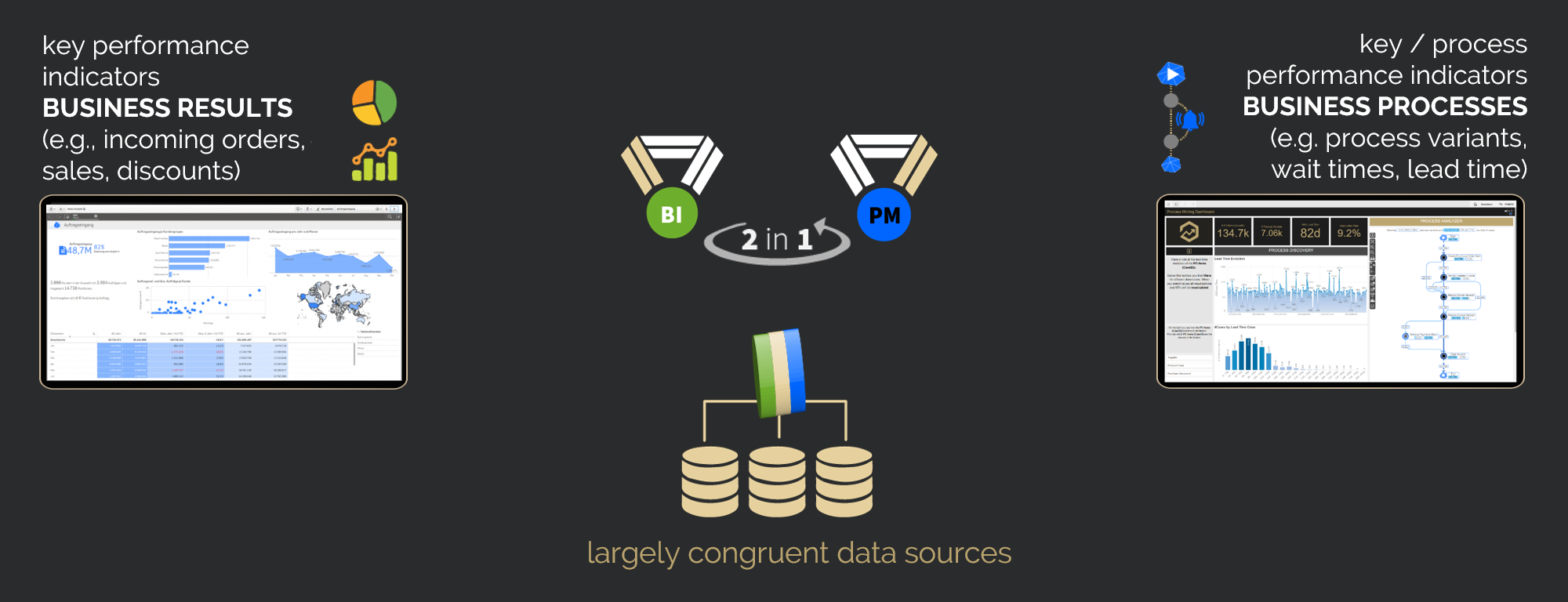|
Synergy of Qlik Sense and Process Mining |
Scroll Previous Topic Top Next Topic More |
Classical Business Intelligence (BI) projects, e.g. sales, purchasing or controlling cockpits, usually show business KPIs such as sales, purchasing volume or various cost types in their temporal development or structure. Despite the possibility to analyze the data from different perspectives using filter or grouping combinations, there is often the need to make process data transparent and to answer process-oriented questions. Examples of such questions are:
•How do processes run with respect to their sequence of activities?
•What are average cycle times (end-to-end and from one specific process step to another)?
•How many different process variants can be found in the log and how often do they occur?
•Which execution variants are the fastest or the slowest?
•Are there differences in the number of process variants or cycles for e.g. different document types or organizational units?
•How often and where do critical or change events occur?
•...
These points are a small excerpt of the questions that usually arise and push the most analysis tools to their limits. Whereas most Process Mining tools do not offer abundant BI capabilities and maturity of known BI platforms or the ability to tailor dashboards to specific needs, MEHRWERK ProcessMining - a Process Mining solution based on the Qlik Sense® platform - offers the advantage shown in the following picture:

Further advantages that MPM offers:
•Existing BI analysis can be seamlessly combined with MPM
•The data governance and access rights are managed centrally
•The level of self-service can be set as desired (from developer to pure analyst every level is available)
•Collaboration options, story mode, responsive design
•Architecture as required: cloud, multi-cloud, on-premise